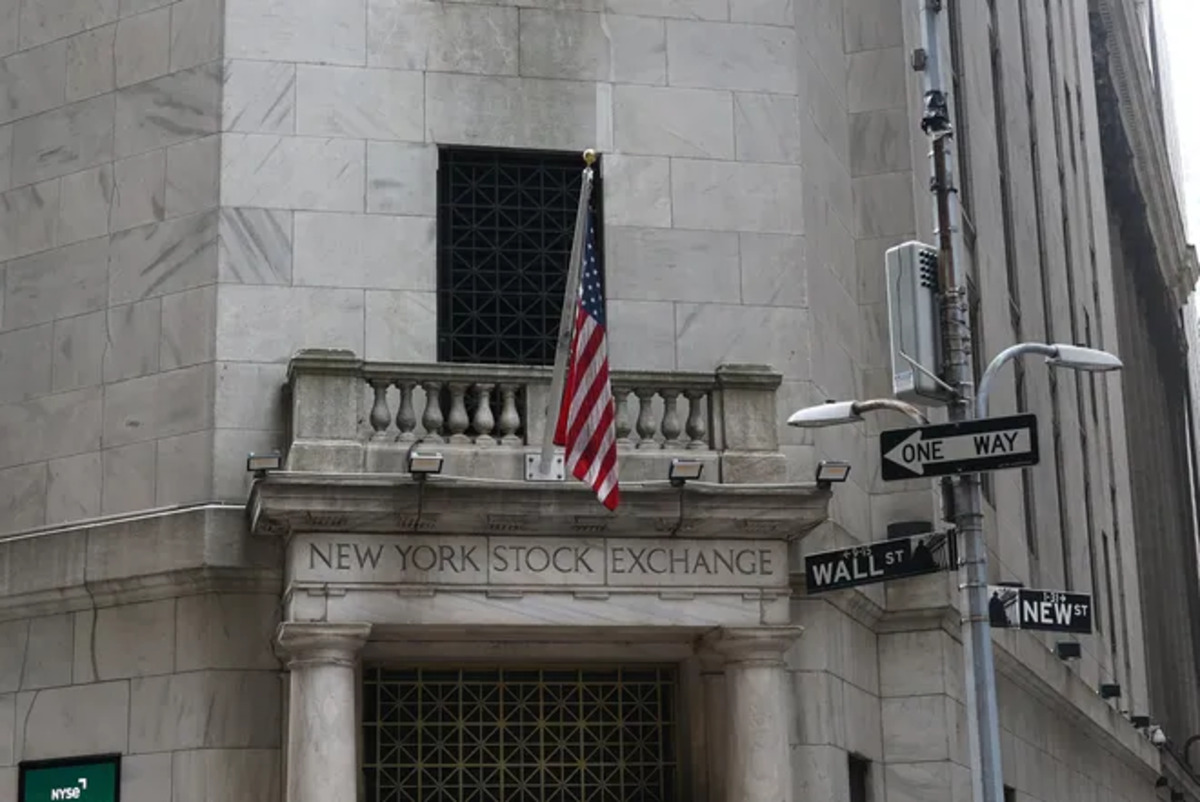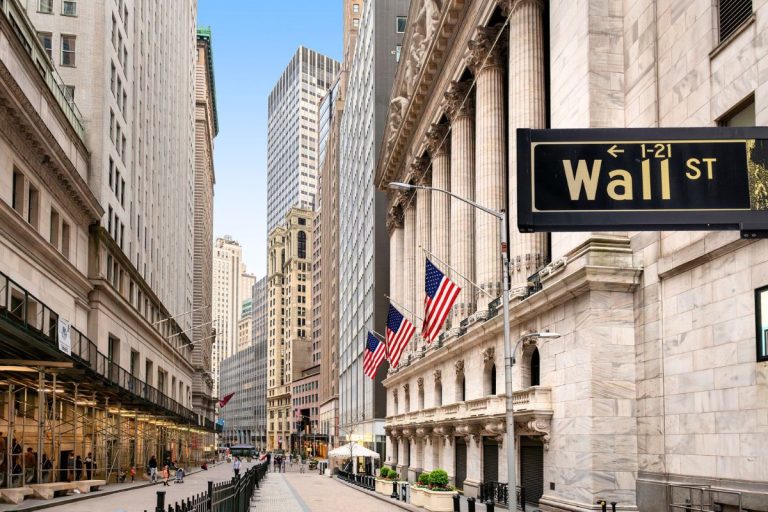The stock market experienced a volatile day on Wall Street recently, with major indexes fluctuating wildly. At the heart of the turmoil are President Donald Trump’s aggressive tariffs, which have raised concerns about the potential for a full-blown trade war. After initially climbing, the market saw another drop, reflecting investor unease as Trump continued to push for higher tariffs, particularly targeting China.
The Dow and S&P 500 Struggle, Nasdaq Holds Steady
The Dow Jones ended the day down by 0.96%, losing 366.54 points and closing at 37,948.32, while the S&P 500 fell 0.23%, dropping 11.90 points to 5,062.18. However, the Nasdaq, which is heavily weighted with tech stocks, saw a slight increase of 0.1%, gaining 15.48 points to 15,603.26. Despite this, the broader market remains under pressure as the global economy reacts to the uncertainty surrounding Trump’s tariff policies.
Trump’s threat to impose an additional 50% tax on Chinese imports has added to the market’s volatility, with the yield on 10-year Treasury bonds climbing to 4.22%. This uncertainty was felt across various sectors, from tech to energy, with commodities like gold also showing signs of stress, although it remains near record highs.
A Mixed Signal on Tariff Negotiations
One of the key points of confusion among investors is whether these tariffs are here to stay or if they are open to negotiation. Trump’s statements have been inconsistent. While initially stating that he had no plans to suspend the tariffs, he later acknowledged that there could be some flexibility in the future. He explained that there are negotiations happening with other nations, signaling that the tariff policy could evolve over time.
In his Truth Social posts, Trump urged Americans to be “strong, courageous, and patient,” framing the tariff dispute as a necessary action to level the trade playing field. He criticized China for its alleged unfair trade practices, such as subsidizing its companies and manipulating its currency, which he claims has led to an unbalanced trade relationship between the two countries.
Economic Ripple Effects and Market Volatility
As Trump’s tariffs take effect, the global market has been hit hard. The Chinese government retaliated by imposing its own 34% tariff on all U.S. imports, further escalating tensions. Meanwhile, other nations have voiced their concerns, with some threatening to implement their own tariffs in response. This global uncertainty has caused markets around the world to experience significant drops, especially in Asia, where indices like Hong Kong’s Hang Seng saw losses of more than 13%.
Despite the turmoil, some investors are starting to view the steep declines as an opportunity to buy the dip. Analysts from LPL Financial have noted that the market might be nearing a point where the president could step in to try to stabilize things before the decline worsens. However, concerns over inflation and the potential for a global recession remain front and center.

The Recession Threat: Experts Weigh In
The escalating tariffs could have far-reaching consequences for the U.S. economy. Diane Swonk, chief economist at KPMG, predicts that the U.S. could be heading into a recession by the second quarter of 2025 if the tariff policies aren’t adjusted. The inflationary pressures from the higher tariffs could start affecting employment and consumer spending, pushing the economy into stagflation, where both inflation and slow growth co-exist.
While some economists believe that the tariffs could eventually stabilize, they also caution that the Federal Reserve might have to delay interest rate cuts longer than expected. Swonk has emphasized that the current market turmoil may force the Fed to hold off on lowering rates until there’s more clarity on the broader economic picture.
Mixed Reactions to Trump’s Economic Strategy
Wall Street’s reaction to Trump’s tariff strategy has been divided. While some, like Jamie Dimon, CEO of JPMorgan Chase, have expressed concerns about rising inflation and the potential for a recession, others continue to support the administration’s actions. Dimon has acknowledged that the tariffs may hurt in the short term but hopes they will ultimately benefit the U.S. in the long run.
However, some industry figures have been more vocal in their opposition to Trump’s trade policies. For instance, Dave Portnoy, founder of Barstool Sports, criticized the market collapse and expressed frustration over how the tariffs were rolled out. Despite his concerns about the economic impact, Portnoy reaffirmed his support for Trump’s broader agenda, underscoring the political divide on this issue.
Looking Ahead: The Future of the Trade War
With the stock market in turmoil and signs of an impending economic slowdown, the question on everyone’s mind is whether Trump’s tariff policies will be adjusted or even reversed. Despite pushback from some sectors, the administration remains steadfast in its stance. Trump has consistently framed his tariff strategy as a “necessary medicine” to address long-standing issues of trade imbalances and unfair competition.
As the markets continue to react, many are left wondering whether the administration will reconsider its approach or hold firm, facing down the possibility of a prolonged trade war. The outcome could have significant implications for the global economy, as well as for the financial markets that are already showing signs of strain.
In the coming weeks, we may see more clarity on whether these tariffs will continue to rise or if there will be some form of negotiation to ease the tension. One thing is certain, though—the economic uncertainty is likely to remain a significant factor in shaping the future of global trade and the markets in the near term.


